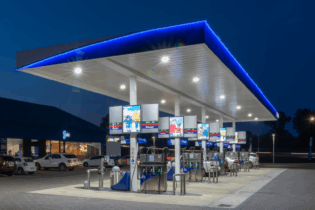E-toll rate shock: R1.75 a kilometre!
Drivers who don’t buy an e-tag for Gauteng’s new toll roads will face a punitive tariff of R1.75 a kilometre.An e-tag user will pay 30c a kilometre, while an “alternative user” is to be charged six times that amount. The SA National Roads Agency Limited’s new punitive rate appeared in Friday’s Government Gazette, where Sanral described an alternative user as someone not registered with the agency. DA Gauteng transport spokesman Neil Campbell said: “This new rate has been introduced without ever having been discussed with any affected body or the public. “The DA is alarmed at the underhand manner in which minister of transport S’bu Ndebele and Sanral have introduced a new punitive tariff for non-registered users.” Ndebele’s spokesman, Tiyani Rikhotso, said the minister was not involved in the toll system and referred comment to Sanral. However, Sanral said an alternative user was entitled to pay the standard tariff if they paid within the grace period of seven days. “Users who do not register, or who do not have valid and operational e-tags, and who do not pay within seven days, will indeed ultimately pay a significantly higher tariff,” it said. Added cost of collection
Sanral said the added costs had to do with contacting the users by means of invoicing, debt collection, and costs associated with recovering payment. Responding to the DA, Sanral said: “By continually encouraging users not to register, it is actually the DA that is going to end up costing road users significantly more than they could otherwise have been paying.”
According to Sanral, at the beginning of the month only 300 000 road users had purchased e-tags. The toll system will go live officially at midnight on April 30. A recent march by Cosatu highlighted opposition to the tolls, which many drivers are threatening not to pay.
treasury director-general Lungisa Fuzile said on Friday it was not compulsory for motorists to buy e-tags to use Gauteng’s toll roads, but it made economic sense to do so.
Fees will be capped at R550 a month for frequent users and taxis. Other accredited public transport providers will not have to pay toll fees.
Find alternative routes
With the launch of the controversial toll system looming, it appears companies are already looking for ways to cut costs.
Drivers at Premier Foods’ Aeroton bakery, which makes Blue Ribbon bread, were told via a letter earlier this month that the e-tolls were too expensive for the company to foot the bill, and they must find alternative routes when making their deliveries. “Due to the high cost of the e-tolling, it is required that you seek alternative routes to deliver to your customers as the company cannot afford to use roads that are e-tolled,” stated the letter, which was issued on April 4. “Please begin to seek alternative routes. Remember this is being done in the best interest of our customers and consumers. Any person who uses the e-toll roads will be responsible for the payment thereof.”
Three Premier Foods drivers, who spoke on condition of anonymity, said this was a near to impossible request because their customers were spread over wide areas such as Alberton and Benoni, and they could go through as many as 10 gantries on a round trip. Willie van der Linde, the regional manager for inland south bakeries of Premier Foods, said he could not say how much the price of bread would increase if the e-tolls were used, but said keeping their product as cheap as possible was their motivation for avoiding the routes. A Premier Foods driver said: “The company we are working under, it does not take input from the workers. They have instilled fear and now people are afraid to lose their jobs if they complain.” He said many of the drivers were illiterate and there had been no meeting to discuss the letter, and management had not given them a map of the alternative routes they should use, but expected drivers to devise routes themselves. In response, Sanral said freight businesses need “to evaluate the productivity gains that e-roads can contribute”. The drivers said they had also been informed that their R5500 to R6500 basic salary was to be changed to commission based on an individual’s bread sales, which could greatly affect their income if they were slowed down by avoiding the e-tolls. Source: iol.co.za
Image: TimesLive.co.za






